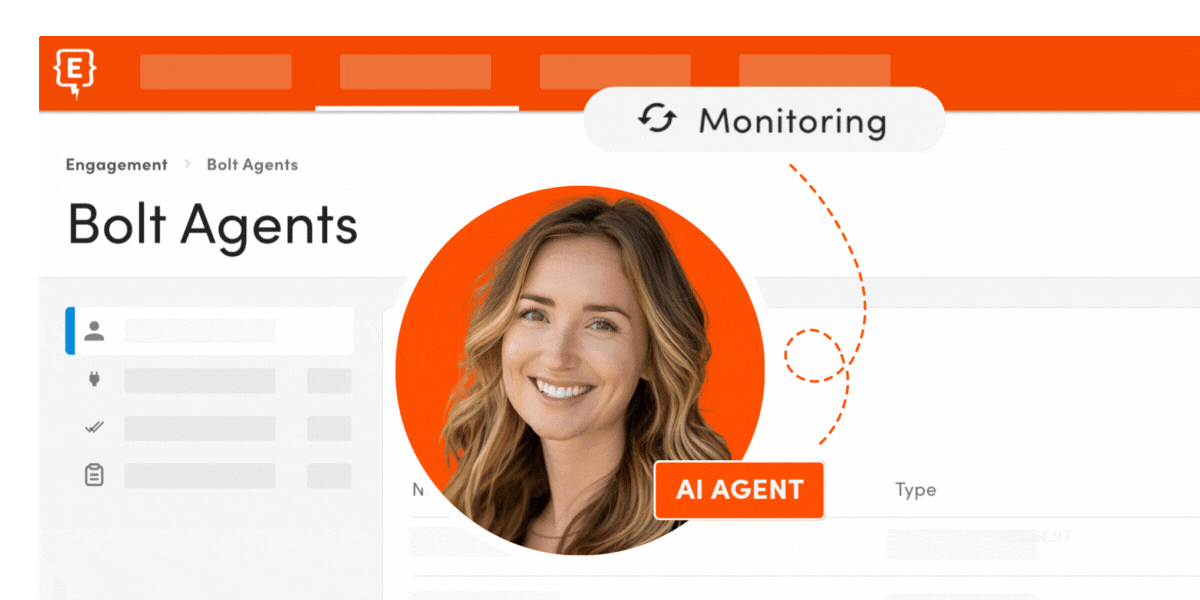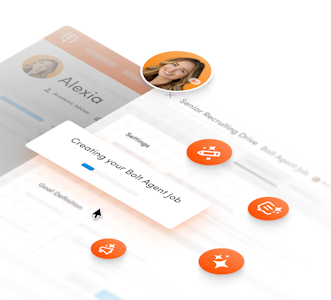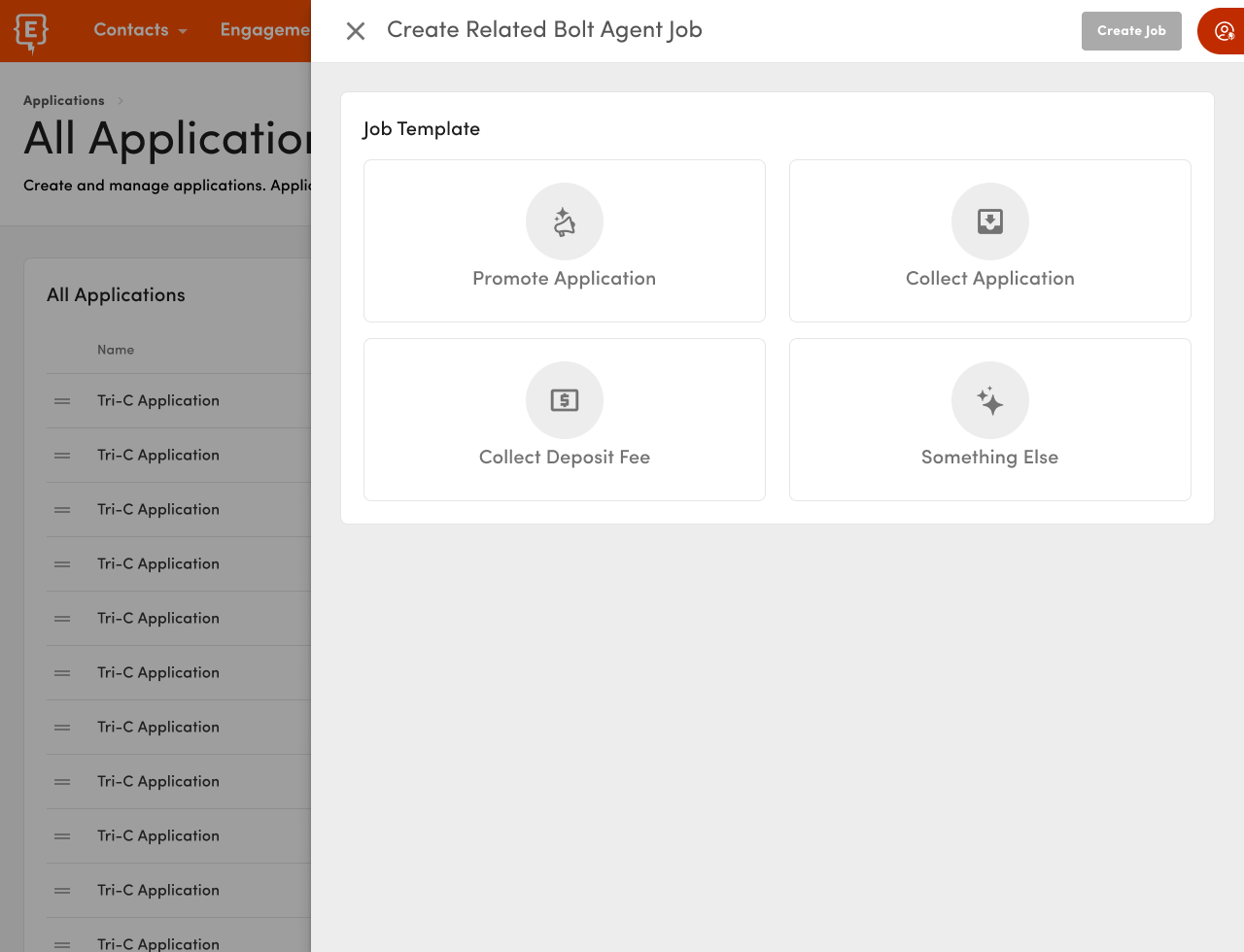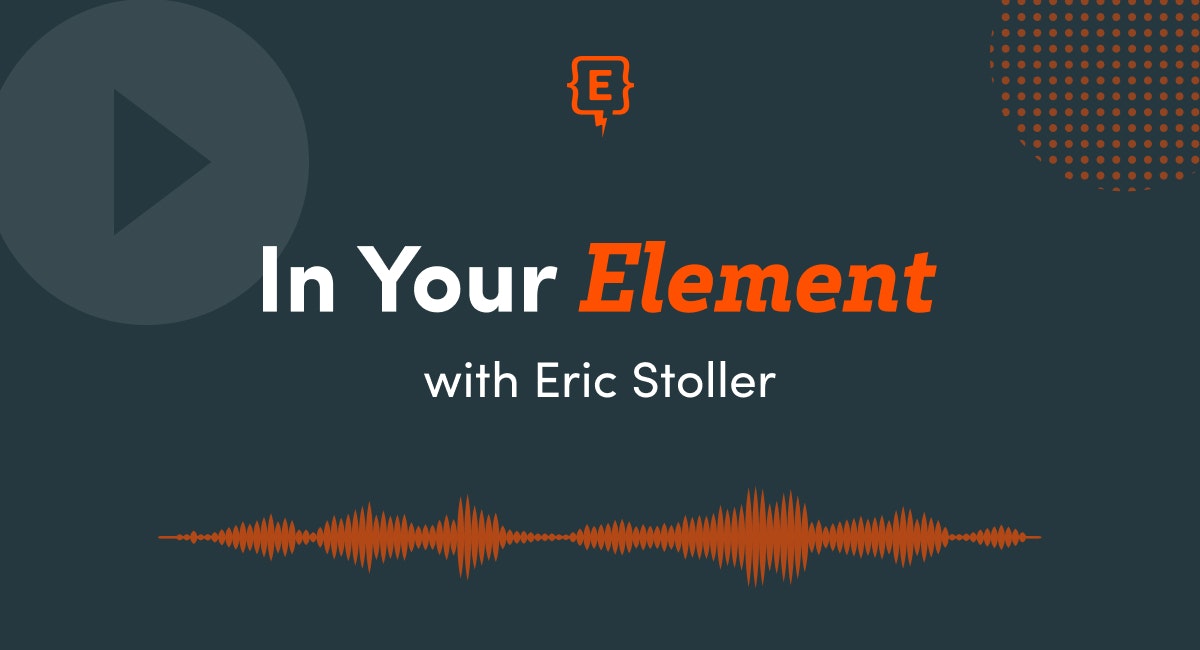The Evolution of Campus Life — Digital Student Engagement in Graduate Schools and Beyond with Christina Ferrari
by Sirley Carballo · Dec 20, 2021

On our latest episode of the In Your Element Podcast, Christina Ferrari, Assistant Director of Student Engagement at Columbia University, sits down with host Eric Stoller to chat about the biggest challenges and innovations happening in higher ed. Together they discuss:
- How the shift to virtual events has changed the future of student engagement.
- The need for robust student activities and connections for graduate students.
- What can institutions do to ensure students are aware of engagement opportunities both in-person and online?
- Can online and virtual settings facilitate engaging development experiences?
Listen to Episode 8 of the In Your Element Podcast here.

It's being flexible. It's realizing that not everything will translate to the virtual environment but quite a bit can. I think the biggest thing is just having student feedback every step of the way.

Full Transcript of Episode 8
Christina
If you know anything about EdTech, you know that K-12, yes, that's, that's exploding. And so I think, you know, in the same way, that the academic end of things, in the same way, that they're getting creative and thinking about using technology, how do we innovate? How do we capture more? You know, target markets and all that stuff? Where is that conversation on the student engagement side of things?
Eric
Welcome to In Your Element podcast on the Enrollify Podcast Network, brought to you by Element451, an advanced student engagement CRM, providing higher ed institutions with a competitive admissions advantage from recruitment to enrollment through the use of AI. On each show, we ask five questions about current challenges, exciting opportunities, and what's next in higher education. I'm your host, Eric Stoller. And on today's show, Christina Ferrari shares her perspective on student engagement, specifically, how to engage with graduate students, when they typically have more responsibilities than they did when they were undergrads. So is it realistic to expect graduate students to come to events to support on-campus initiatives and truly care about what's going on at their university? It's one of the challenges that Christina faces. Right now she's the Assistant Director of Student Engagement at Columbia University, where she leads all aspects of Campus Life for more than 1,400 grad students and coordinates over 200 events a year. And that passion for student engagement? It started back when she was an undergrad.
Christina
Like a lot of folks in student affairs, I was very involved as an undergrad student at DePaul University. You know, the mission is really centered around service. And that was my home as a college student, right? I was very involved in service-learning opportunities, even campus ministry, coordinating retreats, and really helping my peers immerse themselves in the community and myself, and learn from the community and with the community. And that really inspired me to start a career where I could do that for college students, you know, on multiple campuses.
Eric
Prior to her time at Columbia University, Christina's career has included stints at a number of higher ed institutions, including Oregon State University, Roosevelt University, Loyola University in Chicago, the University of Illinois at Chicago, Valparaiso University, and the Fashion Institute of Technology. And in a world where events are both virtual and in-person, Christina has a big job on her hands. You're the Assistant Director of student engagement? What does that even mean?
Christina
Yeah, well, at Columbia University, it's such a rich community with a lot of different schools, and they all operate very differently. So at the Midland School of Public Health, I am within the Office of Student Affairs, and we're a small but mighty team. And I'm the only full-time staff member overseeing all student engagement opportunities. And so what that often means is that I am partnering very heavily with the graduate students who are more than capable of coordinating events and initiatives and really looking for that experience. They want to walk away having made an impact on the school community and apply what they're learning professionally and, you know, academically to the needs of the communities and the world around them. And so, a lot of times, it's helping them think creatively about how to do that.
Eric
We both come from the traditional student affairs world, where student engagement is something that is spoken about in pretty much every other sentence. But oftentimes, when we're talking about student engagement, in that context, we're talking about undergraduate students. That's where a lot of the theoretical frameworks come from. So what does student engagement look like? And how is it different for graduate students?
Christina
You know, I think it depends on the culture of the students. But for me, I got to admit, when I got this role, I was excited, but also very nervous about what would working with graduate students be like. Would they take me seriously? Would I be able to fill a need? You know, I'm someone where being able to create and leave an impact is really important to me. So I wasn't sure what that would look like with graduate students and what I'm finding, and again, public health students, as we know, from the last year and a half, right, the work of public health is ultimately about how do we rise communities up help them overcome, whether it's a pandemic crisis situation or chronic illness or social and economic discrepancies. And so these are students who, not unlike the world of Student Affairs, want to help people. And so my role when it comes to student engagement is thinking about how can we create educational opportunities outside of the classroom that serves as an extension to what they're learning in the classroom. And for example, a couple of years ago, there was a student who was very passionate about gun violence, and you know, had a personal story around that. And it was right on the heels of the Parkland shooting, where she came into my office, she said, "Christina, what are we going to do?" And I said you know what, let's see who else is thinking about this? We put together an event that ultimately just became an opportunity for people to gather and process what happened. And then from there, that group started to inform what has now evolved into Gun Violence Action Week, which takes place every year, coordinated largely by students, but of course, supported by my team and myself. And it is basically an advocacy week looking at the epidemic of gun violence. And we partner with alumni, we partner with community organizations, we work with clinicians. So I work at the medical center campus, which is such a rich and vibrant place where nurses and doctors and dentists and public health professionals are all sharing space together, and as well as, of course, the hospital, New York Presbyterian, and Cornell. So Gun Violence Action Week has become such a lovely example of how if you create the right environment, graduate students are going to be motivated to bring in infuse their passion into campus programming. And so that's a lot of what I do.
Eric
You know, grad students, oftentimes, have a lot on their plates. How do you get their attention? How do you do student engagement with people who have a lot of other things that are trying to engage them?
Christina
Yeah, that's a great question. First of all, I think, you know, it's not realistic for anyone to assume that 100% of their student body will know about what you're doing, let alone participate, right. That being said, I think you have to offer a smattering of levels of engagement, right? There are things that we do that's a passive program if you will, where you come by, grab something, or, you know, make a quick little destress activity, and then be on your way, there are other things that, you know, again, people are so excited, and they're looking for skills, and they're looking to walk away with things that their classes can't give them, that I have, for example, a semester-long fellowship, research fellowship that I partner with some faculty on. They're taking up hours every week doing community-based participatory research and then spending their spring break going to Puerto Rico, where it's not all fun and games. We are collecting data in Puerto Rico, and then they're coming back, and they're analyzing it on top of everything else that they're doing. So, you know, some students are looking for an immersive, exhaustive experience, and others, they're not. So you have to be able to offer the whole spectrum of opportunities.
Eric
Sure, it makes total sense. So getting a bit more granular, then what are the tactics that work best for graduate student engagement? And specifically, how do you incorporate technology into that mix?
Christina
I think technology has such a rich potential to help fill some of these needs, right? And when we moved to a totally virtual academic year, last year, we tried to keep a lot of the same kinds of things that we offered. And we used Zoom, we used what many campuses were using. And I think it's important to be aware of how technology might be evolving or improving to figure out how best to meet those students in a virtual environment. For example, interprofessional education is something we talk a lot about on my campus. And for those who don't know, it's essentially the idea of people from different professions, students from different professions, learning from each other and together. And so, you know, one of the ways that we were able to use some technology to help students do that virtually last year was we essentially modeled off of academic experiences, right, using Canvas and Articulate Rise to build out some asynchronous activities, and then facilitating synchronous breakout rooms to process that activity. And so I think it's just, it's being flexible. It's realizing that not everything will translate to the virtual environment. But quite a bit can. I think the biggest thing is just having student feedback every step of the way. So we prepared something, we had some students look at it and give us feedback. You know, we had alumni who were familiar with what we did last year, comment or share some thoughts so that we could better improve the experience virtually.
Eric
Now, a lot of times when people talk about communication strategies and engagement strategies with undergraduate students, they often sort of lament that maybe students don't check or respond to emails. And they say, well, it's got to be on social media or text message. What works best for the grad students that you work with?
Christina
First of all, Facebook is dead, like, we'd still create class Facebook pages, but I think they're only on it because we have a class page for them. So, you know, I think we certainly do leverage social media like Instagram and Twitter. But I think, to be honest with you, it's partnering really closely with other areas of your school and their university to streamline communications. And so for example, email, we do use to announce things, you know, we try to partner with departments to help them put it on their listservs. And then we also do use student engagement platforms as we use, Engage from Campus Labs, and folks know that that system is really specific to student engagement offerings, and then they log into either a campus calendar or to Canvas for academics, they can kind of select to log in to see the student engagement stuff.
Eric
It's really interesting, sort of the way it's like a recipe and everybody gets to, you know, the outcomes are usually around the same, but it's the sort of ways in which they get there are very different.
Christina
Definitely, yeah. And it's a little bit counterintuitive, because, you know, people say, "Oh, I want everything in one place." Sometimes that's great. Other times, that's overwhelming, and then they're gonna gloss over you.
Eric
Yeah. What do you think is the aspect that makes it overwhelming?
Christina
I think it's when someone doesn't have an eye for visuals and detail and layout. And there are multiple things pulling for your attention. I think also frequency, you know, we have a weekly email that we send in, we try to plan things out in advance where they know to click into Engage, for example, I'm looking at the week ahead. And that's the thing that I will say, with graduate students. They plan ahead, they have their little planner. I work with a lot of folks, right? I know that our students, many of them, they're the type to map out their week. And so knowing that can help us guide how we advertise our offerings to them.
Eric
Wow, cool. Well, thanks. Thanks for that. I always think it's good to sort of dig into certain questions and answers to the sort of getting a little bit more out of it. Now, it's been a challenging year and a half for higher ed, how did that impact your work as someone who I know coordinates something like 200 plus events?
Christina
Yeah, well it's not just me, right? I have a really great team of student leaders and partners. But yes, our data shows that we're churning out dozens of events a month, and, yeah, nearly 200 a year. I think certainly when we went virtual, that does scale down a bit. And so for us, first of all, as a school of public health, right, I feel really fortunate in that my student body understood the measures that were taking place and why we were moving virtual. And, you know, it wasn't so much. It was a challenge, right overnight, their experience changed. And for most of our students who are only there two years, a huge chunk of their experience, almost the entirety of their experience for some, was completely altered. You know, so students had high expectations of the product we would be delivering, right? They didn't expect a virtual year, but when we went virtual, they wanted the same robust offerings that we had. And frankly, for me as an educator, I felt I owed it to them. So we didn't have the volume but we tried to keep the caliber of offerings. For example, one of the things that we thought about was, you know, how can these students who very much vocally said, we want to be involved in this effort, right? If you remember, Eric, back in March of 2020, New York City was the epicenter. So our students were looking for ways to contribute to their community, right, which is what they would have done if we were all in-person pre-pandemic. We'd be doing various service-learning opportunities and community engagement opportunities. And now that we're virtual, we partnered with our hospital New York Presbyterian, and we worked very closely with the other schools at the medical center. And in fact, largely driven by students, both public health and our physicians and surgeons students, we formed what became the COVID-19 Student Service Corps, which at one point, had thousands of Columbia University students contributing to different efforts related to the pandemic. That's amazing. It was incredible to see. And again, I think that's a great example of how graduate students can still own their experience. And we just need to help figure out how to make that possible through, you know, technology and other means.
Eric
Well, so one of the themes for this show is the sort of the unifying theme, it's all about student success. And I think one of the themes that are emerging from this conversation, Christina is the students, you know, at the center of everything. So what needs to change in student affairs to provide engagement that matches up with the needs of all students?
Christina
First of all, graduate students and even folks returning or just getting certifications, right? If you know anything about edtech, you know, that K-12, yes that's, that's exploding, but to higher ed is too, as his upskilling, and workhorse credentialing and micro-credentials. And so I think, you know, in the same way, that the academic end of things, in the same way, that they're getting creative and thinking about using technology, how do we innovate? How do we capture more, you know, target markets and all that stuff? Where is that conversation on the student engagement side of things, right, like who's thinking about that student journey? What is service-learning, for example, what does that look like online? You know, my team and I, we figured that out through our research fellowship that I talked about before, we were able to still do some cool things virtually and help with creating infographics to distribute in San Juan and, you know, some remote service-learning, the COVID-19 Student Service Core, that I just talked about, that was all virtual, but you know, from robust student involvement, student engagement perspective, I'm not seeing a lot utilizing and leveraging technology. And I really think that that is, you know, if we want to say that a virtual experience can be developmental, not maybe not as developmental or informative as an on-campus experience, then that's debatable. But if we want to really talk about the value of what those offerings are, we have to think about the other pieces of that student experience in a virtual world.
Eric
Why do you think the adoption lags behind on that side? You know, you mentioned the academic side of things.
Christina
I mean, it's harder, right? We all know a Zoom meeting face to face is not the same thing as being in the room with the same person, right? We know that. Virtual events, they don't hold a candle to in person.
Eric
Well, you say that, of course, being from Colombia, which is all about people coming to a physical campus. Now, just to push back a tad bit, you know, there are online-only programs that show geographically dispersed students, and they're crying tears right now because of course, they're being told that their experience maybe isn't as good.
Christina
Great point. Yes. I think that you know, what we are seeing and what COVID is really teaching us is that students can learn, in fact, some students, some of our students, learned better during this past year, virtually, right? And so the learning the knowledge acquisition, there may be ways to really create a very robust experience, and certainly, there's a lot of energy there. I think the student engagement piece and it's not to say that nobody's thinking about doing that, because there are in fact, there are folks who are doing it pre COVID. But on a large scale on a student affairs lens that I have right now, right? I don't know that I've seen a NASA presentation about this. I don't know that I've read articles.
Eric
That's funny. That's my next question. Actually, I was gonna ask you about sort of, where do you go for professional development to enhance that student engagement, knowledge and skills and as well as, like the evolution. You just sort of answered it before I've been asked it around.
Christina
Yeah, well, so it's funny that you say that, because I was reflecting on this very thing because ASU and the GSB Summit is happening through today, I think, honestly, and it was COVID that helps me be pointed in this direction a bit. Um, it's not only just the student affairs, professional development opportunities, right, I still seek those out, I still have a community there, but I've also had the opportunity to serve in some leadership roles there. But I think I've extended as my career has moved on. And also too, I've worked at places that were not your traditional campus. You know, prior to this, I was at FIT, which is the Fashion Institute of Technology, a very cool school, that is art and design and business, in the world of retail, and, you know, accessory in fashion, and so pretty niche, right? So I find that I'm not only looking to your typical student affairs, professional development opportunities, I'm also targeting the folks who are having the EdTech conversation, and I'm seeking out materials for those, you know, within those spaces, and then also too because I'm not a public health professional, I'm looking at what the fields of their profession are doing. Right, so the American Public Health Association for one, so it's a combination. And it's exciting to see that, especially in the EdTech space, there is more that's coming out in terms of supporting staff and faculty. And so, you know, if there's a silver lining with COVID, I think that might be part of it.
Eric
Absolutely. Yeah. Nice. That's a great answer. Thanks for that. I know, it's always interesting to sort of reveal where you go to learn more. So I was asking every single person on this show a bonus question. Picture this, you've got an unlimited budget for digital transformation, as it relates to student engagement. What technology or functionality would you invest in?
Christina
Yeah, wow, gosh, I need to think about it,
Eric
You don't have to name names, it could be more just like, functionality-based things, things you wish you could do.
Christina
I definitely think if there were ways to have students connect to alumni, and each other, and faculty really easily, you know, building those communities, maybe, for example, I'm thinking about our students who have pretty specific interests professionally, and also personally.
Eric
So sort of like peer to peer stuff. Yeah, extending it outward, and sort of multi-directional stuff where faculty can come in and engage and, you know, alumni can as well.
Christina
Yeah. And that, you know, it could be a platform for not just learning but affinity groups, for folks who share identities or you know, where they can find commonality really easily, like a social network for our school. But you know, something that's more dynamic than just that, because, I find students were so isolated and feel so isolated in that virtual space, it's harder to form those organic connections and find each other.
Eric
Right, sort of the bonds that kind of naturally, are created when you're talking to people at a cafe over a coffee or something a little bit more challenging in some ways when it's in the virtual environment. Well, thank you so much for agreeing to come on the show, Christina Ferrari. Really appreciate you coming on In Your Element today. Thank you so much.
Christina
Thank you. This was awesome. And thank you for really helping to shape a conversation across this industry about what we can do more for students.
Eric
That was Christina Ferrari from Columbia University. For more in the Mailman School of Public Health, visit publichealth.columbia.edu. Thank you for listening to In Your Element brought to you by Elemen 451 as part of the Enrollify Podcast Network. You can find more about the Element451 student engagement CRM at Element451.com. And if you liked what you heard, please give us a rating and review and follow along on Apple Podcasts, Spotify, or wherever you get your podcasts. I'm Eric Stoller, and we'll see you next time on In Your Element.
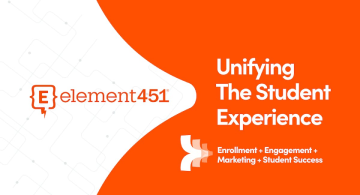
About Element451
Boost enrollment, improve engagement, and support students with an AI-driven CRM and agent platform built for higher ed. Element451 makes personalization scalable and success repeatable.
Categories
New Blog Posts
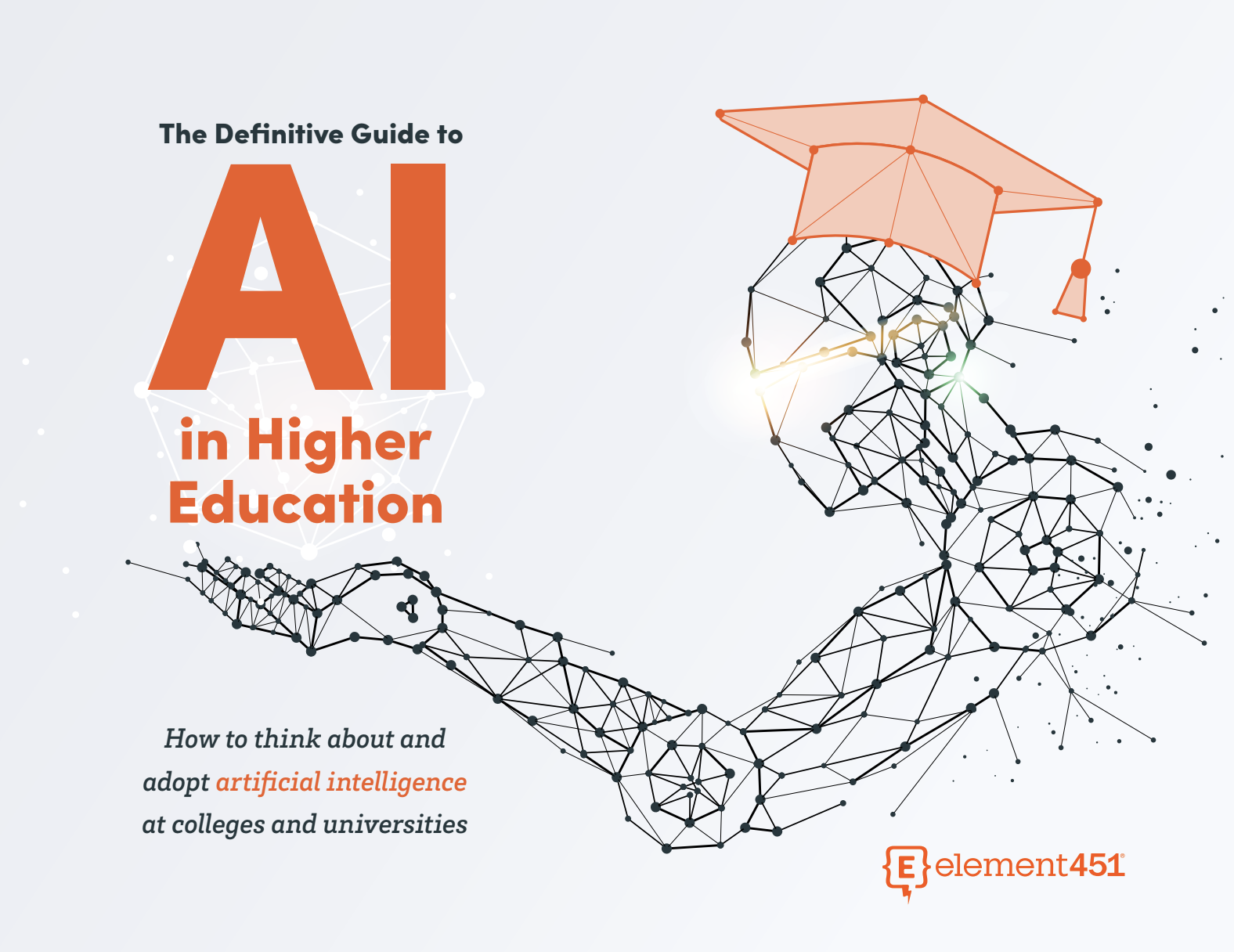
The Definitive Guide
AI in Higher Education
Bridge the gap between the latest tech advancements and your institution's success.
Useful Links
Related Articles

Talk With Us
Element451 is an AI-driven CRM and AI agent platform for higher education. Our friendly experts are here to help you explore how Element451 can improve outcomes for your school and students.
Get a Demo


